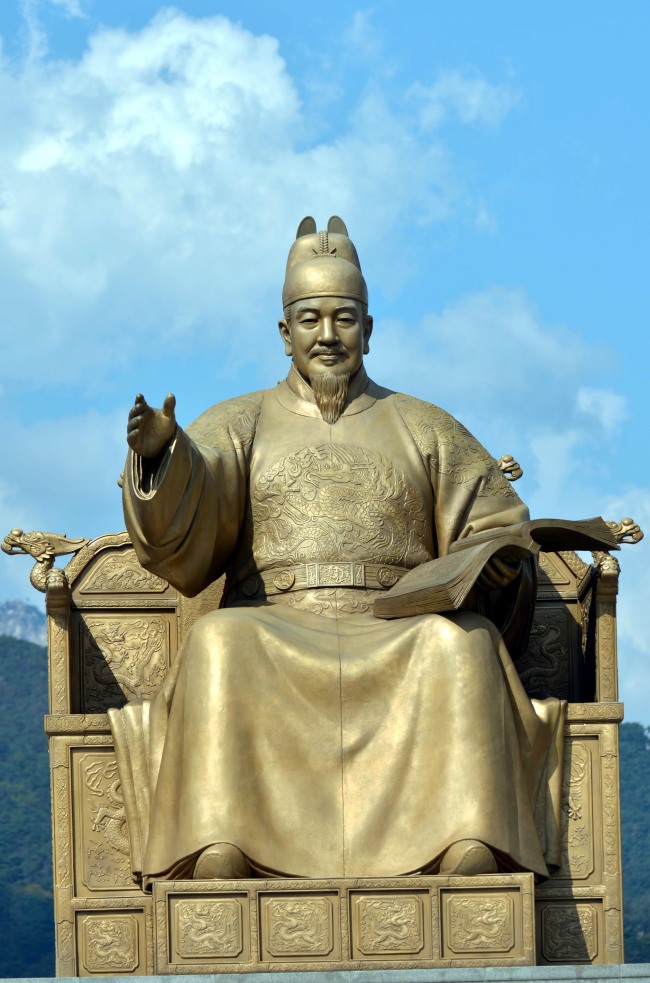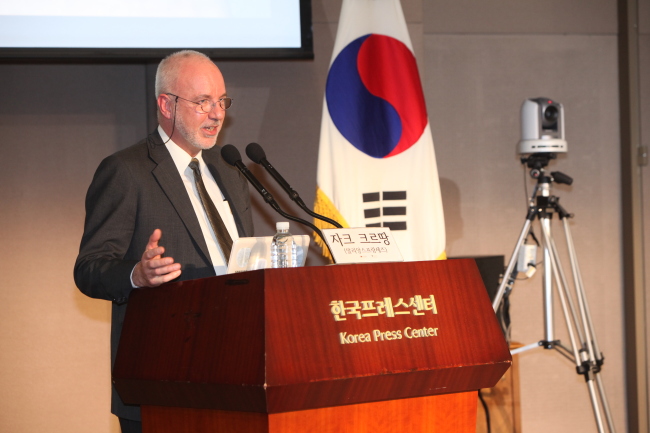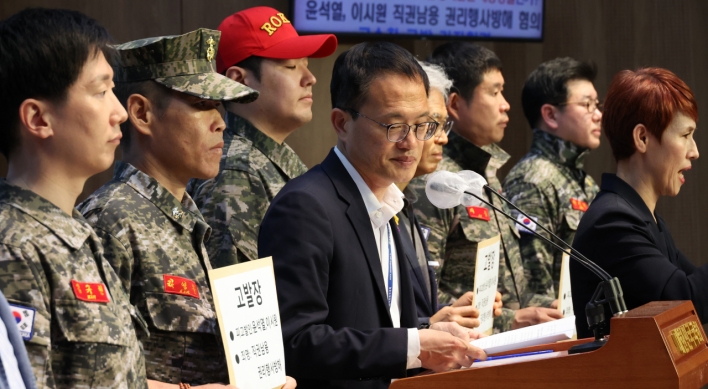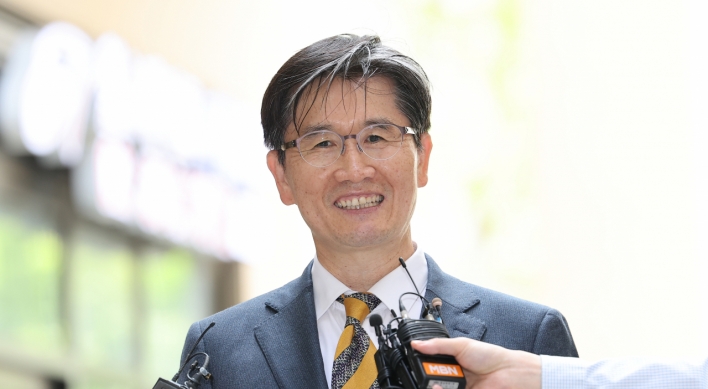‘Korean language school could be useful for culture promotion’
By Korea HeraldPublished : May 15, 2013 - 20:21
Hallyu, or the spread of Korean pop culture, has resulted in people around the world wanting to know more about Korea, its language and culture. However, there is a dearth of relevant programs to meet their needs, a government survey showed Wednesday.
International institutions, such as the King Sejong Institute, can contribute to becoming a bridge and stepping stone for the promotion of Korean language and Korean culture, experts suggested at a global forum held on Tuesday, a day before the 616th birthday of King Sejong (reign 1418-1450), who invented and promulgated Hangeul, the Korean writing system.
International institutions, such as the King Sejong Institute, can contribute to becoming a bridge and stepping stone for the promotion of Korean language and Korean culture, experts suggested at a global forum held on Tuesday, a day before the 616th birthday of King Sejong (reign 1418-1450), who invented and promulgated Hangeul, the Korean writing system.

In a Ministry of Culture, Sports and Tourism survey of 2,089 people who have enrolled at the King Sejong Institute, a Korean language educational institute with 90 branches in 44 countries, about 33.7 percent of the respondents said they started learning Korean because they were interested in K-pop. The survey also showed that 19.3 percent were willing to work at Korean companies while 15.8 percent wanted to study in Korea in the future.
While 62 percent said they had had chances to try Korean food, watch Korean films and participate in K-pop contests at the institute, only 60.7 percent were satisfied with the time allotted to these cultural programs.

“Where there are Korean descendants, Korean economic ties and a cultural boom, the need for the language rises, and vice versa. The institute could become the center of language education and offer more cultural programs,” said Sangmyung University professor Cho Hang-rok of Sangmyung University at the forum titled, “Leap of Korean Language and Culture through King Sejong Institute,” held at the Press Center in downtown Seoul on Tuesday.
The forum panelists noted that the British government’s British Council, France’s Alliance Francaise, Germany’s Goethe Institut, Japan’s Japan Foundation and China’s Confucius Institute all served a similar role ― bringing the respective country and its image closer to people around the world. Jacque Cretin, director of Alliance Francaise in Korea, explained that in a survey by an Israeli university, France was picked No. 1 for cultural exchange with the Israelis, thanks to the robust activities of the French language educational institution.
“Our network with the government and private sector enabled us to get closer to the people and enhance our influence,” Cretin said.
The Confucius Institute is a good example of building a global network that can enhance international awareness of the King Sejong Institute, experts said.
The Confucius Institute was established in 2004 to promote the Chinese language, forge ties with the world, and promote a positive image of the country. Today there are more than 414 branches in 112 countries with Confucius classes established at 565 middle and high schools around the world where a total of 650,000 people have enrolled for more than three months.
“We had a clear vision: We will provide equal service for everyone as a non-profit organization. We used schools to establish classes and supported the nurturing of Chinese language teachers, and provided everyone ample information and materials about Chinese culture. We started with language but ended with cultural exchange. I hope in the future the King Sejong and Confucius institutes could collaborate for an exchange of information and culture, and reinforce hallyu and hanyu (Chinese boom) around the world,” said Ma Jianfei, executive director general of the Office of Chinese Language Council International Confucius Institute Headquarters.
“What Korea must do at this point is to define our own culture, select what we like the best, nurture them and sell them,” said Ewha Womans University professor Choi Joon-sik. “If you can’t understand your own culture then no one will. Studying our own culture will be the starting of utilizing the institute in the right way,” he added.
By Bae Ji-sook (baejisook@heraldcorp.com)
-
Articles by Korea Herald










![[Weekender] How DDP emerged as an icon of Seoul](http://res.heraldm.com/phpwas/restmb_idxmake.php?idx=644&simg=/content/image/2024/04/25/20240425050915_0.jpg&u=)

![[Today’s K-pop] NewJeans' single teasers release amid intrigue](http://res.heraldm.com/phpwas/restmb_idxmake.php?idx=644&simg=/content/image/2024/04/26/20240426050575_0.jpg&u=)






![[Herald Interview] Mistakes turn into blessings in street performance, director says](http://res.heraldm.com/phpwas/restmb_idxmake.php?idx=652&simg=/content/image/2024/04/28/20240428050150_0.jpg&u=)
